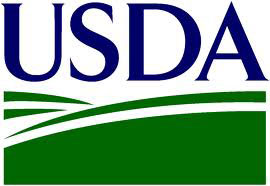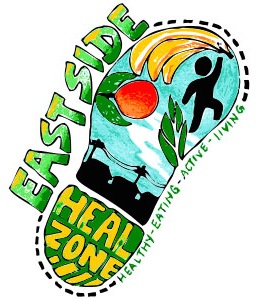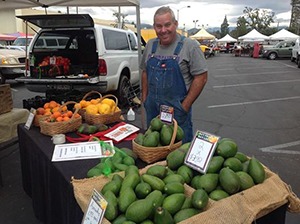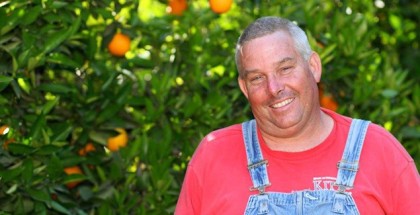Conference News
Team Led by UC Riverside Scientist Receives $4 million Grant to Fight Disease Devastating Citrus Industry
February 10, 2016 | Sean NealonPress Release – RIVERSIDE, Calif. (www.ucr.edu) — A team of researchers led by a University of California, Riverside scientist has been awarded a $4 million grant from the U.S. Department of Agriculture in an attempt to save the United States citrus industry from a disease that has already devastated the industry worldwide.
Huanglongbing (HLB), also known as citrus greening disease, is a bacterial plant disease fatal to citrus trees. The disease has devastated citrus trees in Asia, South America and Florida. More recently it has been found in Texas and California.
“This disease is getting more and more scary because we have no cure,” said Wenbo Ma, an associate professor of plant pathology at UC Riverside and lead researcher on the project. “Once a tree is infested all a grower can do is watch it die.” Read More
USDA Awards $20 Million in Grants for Citrus Greening Research; UC Riverside Among Recipients
February 9, 2016 | USDA USDA Press Release – The U.S. Department of Agriculture (USDA) today awarded $20.1 million in grants to university researchers for research and extension projects to help citrus producers fight Huanglongbing (HLB), commonly known as citrus greening disease. This funding is available through the Specialty Crop Research Initiative (SCRI) Citrus Disease Research and Extension Program (CDRE), which was authorized by the 2014 Farm Bill and is administered by USDA’s National Institute of Food and Agriculture (NIFA).
Press Release – The U.S. Department of Agriculture (USDA) today awarded $20.1 million in grants to university researchers for research and extension projects to help citrus producers fight Huanglongbing (HLB), commonly known as citrus greening disease. This funding is available through the Specialty Crop Research Initiative (SCRI) Citrus Disease Research and Extension Program (CDRE), which was authorized by the 2014 Farm Bill and is administered by USDA’s National Institute of Food and Agriculture (NIFA).
“Citrus greening has affected more than 75 percent of Florida citrus crops and threatens production all across the United States,” said Secretary Tom Vilsack. “The research and extension projects funded today bring us one step closer to providing growers real tools to fight this disease, from early detection to creating long-term solutions for the industry, producers and workers.” Read More
To Combat Obesity in Riverside’s Eastside Neighborhood, HEAL Program Tackles Local Food Access and Nutrition
February 8, 2016 | Marissa Gawel
The Eastside Healthy Eating Active Living (HEAL) Zone program seeks to improve the overall wellness of Riverside, CA’s Eastside community through education and increased access to healthy local food.
As of 2012, in Riverside, California’s Eastside neighborhood, more than half of the adults and almost a quarter of the teenagers, were considered overweight. To stem this rising tide of obesity, Kaiser Permanente awarded a $1 million grant to establish a Healthy Eating Active Living (HEAL) Zone program to improve the Eastside community’s overall wellness through education and increased access to healthy local food.
Kaiser sees the HEAL Zone program as a community benefit, according to health manager Cecilia Arias.
“Wellness isn’t just about the absence of illness. It’s about how you live,” she says. “Is your community supportive of you having a healthy lifestyle? Is it safe for you to go out to exercise and walk or do something the park?” Read More
From Teacher to Farmer: Born and Raised Riversider Revives Family Grove, Profits from Diversification
February 5, 2016 | Anne Craig
Brian Griffith of Griffith Family Farm in Riverside, CA selling his fruits and vegetables. Image courtesy of Brian Griffith.
When the recession eliminated Brian Griffith’s teaching job of 22 years, he wasn’t sure at first just what he’d do next.
“It was a difficult time,” he says. “That same year, my dad was diagnosed with Alzheimer’s.”
His parents lived on a two-acre property in Riverside, California.
“There was a citrus grove there and they didn’t care for it much or pay much attention to it,” he says. “Navel oranges had been really overplanted in Riverside at one time, and there was almost no money in growing a small quantity of them if you were selling them through the packing houses.”
At loose ends and on unemployment, he decided to try to sell some of the fruit the grove produced at a farmers’ market. Read More
27 Communities Selected to Participate in ‘Local Food, Local Places’ Ag Revitalization Initiative
February 5, 2016 | seedstockPress release – Last week, on behalf of the White House Rural Council, six federal agencies joined together to announce the selection of 27 communities in 22 states that will participate in Local Foods, Local Places, a federal initiative that helps communities increase economic opportunities for local farmers and related businesses, create vibrant places and promote childhood wellness by improving access to healthy local food.
Developed as a partnership among the U.S. Environmental Protection Agency, U.S. Department of Agriculture, U.S. Centers for Disease Control and Prevention, U.S. Department of Transportation, the Appalachian Regional Commission, and the Delta Regional Authority, this initiative is part of the White House Rural Council’s Rural Impact work to improve quality of life and upward mobility for children and families in rural and tribal communities.
“Local Foods, Local Places helps people access healthy local food and supports new businesses in neighborhoods that need investment,” said EPA Administrator Gina McCarthy. “The program is good for the environment, public health and the economy. By helping bring healthy local food to market and offering new walking and biking options, Local Foods, Local Places can help improve air quality, support local economies, and protect undeveloped green space.” Read More
10 Beginning Farmer Training Programs Across the U.S. Focused on Sustainability
February 2, 2016 | AJ Hughes
Students at the Merry Lea sustainable farm in Indiana are seen working at the “kitchen farm”. (photo courtesy of Jon Zirkle/Merry Lea Environmental Learning Center)
The average age of American farmers is 58.3 years, according to the U.S. Census of Agriculture. Young farmers are needed, and those who are inexperienced have a variety of farmer training programs (many of them focusing on sustainability) to choose from.
- Oregon’s Rogue Farm Corps runs an internship program for beginning farmers called FarmsNext. This full-season offering trains new farmers and ranchers in sustainable agriculture. Those enrolled in the program gain up to 1,500 hours of hands-on training from a mentor, 75 hours of classroom time, local farm tours and independent study opportunities. Rogue Farm Corps runs four chapters across the state: Rogue Valley, South Willamette, Portland and Central Oregon. The organization was founded in 2003 by farmers in the southern part of the state who saw the need to provide education to those new to agriculture.
Congressman Mark Takano Works to Unleash Power of Agriculture for Riverside’s Health and Prosperity
February 1, 2016 | AJ Hughes
Congressman Mark Takano, whose district includes the City of Riverside, spoke at the 2014 GrowRIVERSIDE conference and is a champion of local and sustainable food and agriculture. (photo courtesy Josh Weisz/Office of Congressman Mark Takano)
Congressman Mark Takano, a Democrat from California’s 41st congressional district, was born in Riverside, California. The longtime Riverside Community College Board of Trustees member delivered a keynote address at GrowRIVERSIDE’s “Citrus and Beyond” conference in 2014, and he understands the importance of local sustainable agriculture to the economic prosperity of Riverside.
Seedstock caught up with Congressman Takano, who answered some of our questions:
Seedstock: What are your impressions on the pursuit of the development of local food system infrastructure in your district?
Takano: We’re making good progress, but there’s more work to do. The efforts of GrowRIVERSIDE are really encouraging and I was honored to be a keynote speaker at the GrowRIVERSIDE “Citrus and Beyond” conference. It really takes buy-in from consumers to get this kind of thing going and that’s what I’ve been seeing. Read More
Hub-to-school: Food Hubs and Schools in Vermont Work Together to Drive Localization of Food System
February 1, 2016 | AJ Hughes
Volunteers pose next to boxes of gleaned food, all destined for a Vermont food hub. Numerous food hubs in the state supply produce to schools. (Photo courtesy Abbey Willard/Vermont Agency of Agriculture, Food and Markets)
Food hubs and farm-to-school programs are essential mechanisms in increasing access to food produced locally and sustainably. In Vermont, an effort is underway to combine the power of both.
As the recipient of a USDA farm-to-school grant in 2013, the Vermont Agency of Agriculture, Food and Markets (VAAFM) produced a report titled “Using Food Hubs to Create Sustainable FTS (Farm-to-School) Programs.” It explores how to leverage “non-traditional resources to expand farm-to-School market relationships between Vermont’s schools and producers.”
The publication was released in March 2015, and now, more than nine months later, VAAFM local foods administrator Abbey Willard is pleased with its impact. Read More











